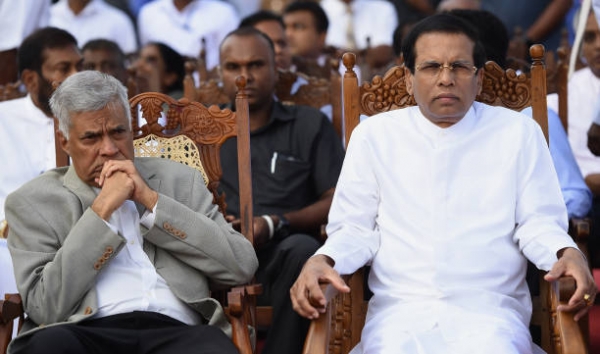Professor S. I. Keethapocalan, a Sri Lankan political analyst, has suggested that President Maithripala Sirisena will be politically isolated if he decides to contest the Presidential election in 2020.
In an op-ed piece in Euro Asia Review, tKeethaponcalan has said the incumbent President has only meagre chances of winning a Presidential election again.
He said, "In the early days of his presidency, Sirisena was compared to Nelson Mandela by some overenthusiastic commentators. For example, Kathleen Gallagher and Agatha Hultquist wrote an article entitled “Sri Lanka’s Mandela,” albeit with a question mark. Sirisena has a long way to become Sri Lanka’s Mandela. Nevertheless, the President would like to leave behind a good image when leaving the office. He may try to keep his promise by not contesting the next election. This however, is not a major problem. He may be convinced to contest for a second term by his able advisors, including Faizer Mustapha, or they will find an excuse for him to contest again.
Two, even if the President decides to contest in 2020, winning could become really problematic. Currently, he does not have the full backing of his party, the SLFP. Former president Mahinda Rajapaksa has formed his own party called the Sri Lanka Podujana Peramuna (SLPP) and a portion of the SLFP members of parliament, provincial councils and local bodies are loyal to Rajapaksa. Rajapaksa also remains extremely popular among SLFP voters especially in rural areas. The SLPP is contesting the forthcoming local government election separately. Rajapaksa and his party will be emboldened if they manage to win a large number of seats and bring several councils under their control. This will pose a serious challenge to Sirisena’s authority within the SLFP because more SLFP members will cross over to the Rajapaksa faction within and outside parliament."
He also added, "Even if the SLPP does not score well in the local government election, Sirisena will lead a fractured SLFP in 2020 because of the fundamental policy and personal differences between Sirisena and Rajapaksa factions. Rajapaksa and his loyalists are extremely unlikely to accept Sirisena’s leadership even if the two factions come together as suggested by some party seniors. Sirisena will face a challenge from a SLPP candidate, probably a Rajapaksa brother because, according to the constitution, Mahinda Rajapaksa cannot contest in 2020. Compared to Basil Rajapaksa, Gotabhaya Rajapaksa is more popular among Sinhala voters. However, Gotabhaya’s candidacy could galvanize all pro-democracy and moderate forces in support of the opposition. Therefore, the possibility that Basil Rajapaksa will be fielded cannot be overruled.
UNP Support?
The point is, Sirisena cannot win the next presidential election without the UNP support. If this is true, the pertinent question is, whether the UNP will throw its weight behind Sirisena. As of today, the indications are that the UNP will be unlikely to back Sirisena for president in 2020. First, UNP leader Ranil Wickremesinghe has his own presidential ambitions and probably 2020 will be his last chance to give it another try.
Second, the current realities are different from the realities of 2015. In 2015, the UNP needed a proxy to unseat Mahinda Rajapaksa. In 2020, the UNP would not need a proxy and can field its own candidate. Moreover, in a three-way matchup involving the SLFP, SLPP and UNP, the UNP’s chances are extremely promising. Therefore, there is no reason why the UNP should support Sirisena.
The crack between the UNP and Sirisena is already evident. The bond scam and the alleged involvement of some UNP members in it has already strained relations. Under pressure, the President is talking tough. According to newspaper reports, a UNP minister has called the president a thief or in his words a “pickpocket president.” In response, the president has walked out of the cabinet meeting. These issues could be a precursor to a permanent separation. In fact, the UNP might escalate confrontations as a strategy in the near future and the separation would become a reality sooner or later.
Therefore, the President may be thinking about his 2020 dilemmas when he asked the Supreme Court if he can stay in office until 2021."










